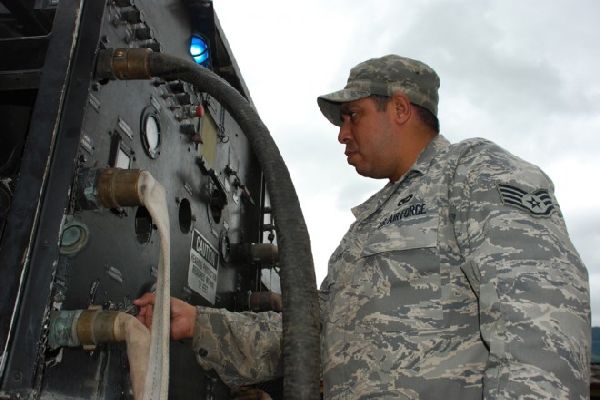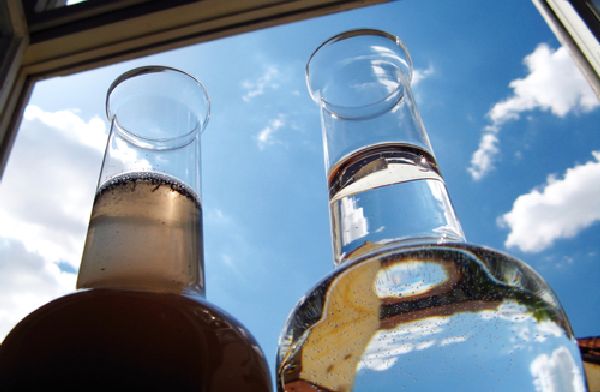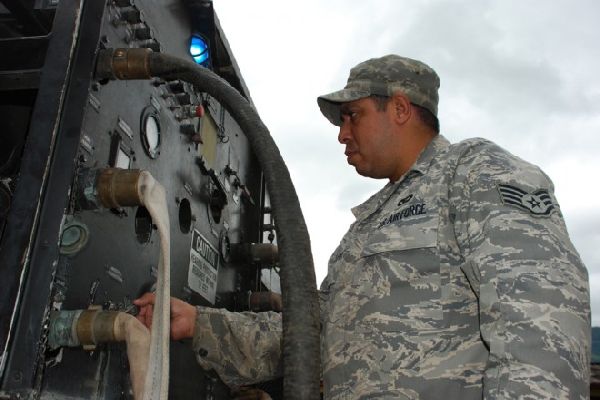As we know it:
We all know that millions of people around the world die each year because of the lack of clean drinking water. To cater to this burning issue, research groups over the world are focusing on water purification systems that can be used by people in the developing world. The most commonly applied methods for purification include sedimentation and filtration. Additionally, depending on whether the situation demands so, methods such as chlorination, flocculation and electromagnetic radiation may also come into play here.

Need for change:
You can never check water for probable impurities by examining it visually. Moreover, household procedures like boiling or usage of carbon filters is not sufficient when it comes to treating the contaminants which enter the water via different unknown channels. In a research conducted by the WHO it was revealed that nearly 1.1 billion people have little or no access to pure drinking water. The research further showed that approximately 88 percent of the estimated four billion diarrheal cases reported each year are vented through inadequate hygiene conditions and unsafe drinking water. World health organization also believes that a majority of the diarrheal deaths are actually preventable if people start paying a little more attention their drinking water conditions. To ensure the quality of drinking water, there are several techniques available. Of them, techniques like filters, chlorination, solar disinfection, storing water in safe containers are a few worth considering. However, expensiveness is a major factor that keeps people from applying the techniques listed above. Boiling, for instance, is a process that requires tons of fuel to be consumed. In keeping with changing environmental demands, it is absolutely imperative that we apply techniques which are not only eco friendly but at the same time give optimum value for money.
What’s next?
1. New biological solution helps purify water with bacteria:

Now that we know the importance of drinking purified water, let us discuss what laboratories and research organizations across the globe are doing to provide us with newer and more effective ways of keeping the water clean and safe for drinking. Honestly speaking, the scientific community has left no stone unturned in ensuring that each and every citizen has access to clean drinking water. Of them, the newest development from the Yissuf Research Development Company stable deserves to be mentioned at the outset. The company has come out with a new and effective solution to all your drinking requirements.
Known as the biological system, the concept, designed and developed by Jerusalem based Hebrew organization, aims at utilizing bacteria in the form of bio filters. The concept works by trimming down the levels of nitrates in various water sources. Apart from rendering clean water, the technology also ensures its decontamination from nitrates and boron.
What’s even better, the technology further promises to get the water decontaminated from several other elements in the most cost effective manner possible. Hence, it can be used in conjugation with a plethora of water purifying techniques. The developers have paid utmost attention to creating the new cost effective solution. Therefore, the system will lessen the nitrate levels present in water to make it more suitable for different purifying systems.
2. U.S. Army sends bacteria based water purifier system to Afghanistan:

If scientists in Jerusalem are trying their best to address all your water purification needs, then researchers half the way across the world in America have not lagged behind either. A group of scientists from the Sam Houston State University have come together to create an efficient, portable and bacteria based water treatment unit. The devices have already been dispatched to army bases in Afghanistan. Moreover, talks are currently on with the Pentagon about dispatching similar devices to Haiti for facilitating relief efforts there. In Afghanistan, where convoys of trucks carrying purified water had to be arranged for everyday, the army was facing serious logistical challenges. The latest arrival is slated to bring down the number of military trucks hitting Afghani roads each day. According to surveys, a single soldier deployed in Afghanistan uses close to 20 gallons of fuel every day. Having a fuel effective solution to drinking water requirements means better fuel consumption for the army.
3. Researchers at University of Nottingham use bacteria to clean water

A bacterium is often linked to a plethora of disease and illnesses. However, scientists at The University of Nottingham have devised a unique mechanism that uses bacteria in conjugation with latest membrane filtration technologies to create refined and improved drinking water.



